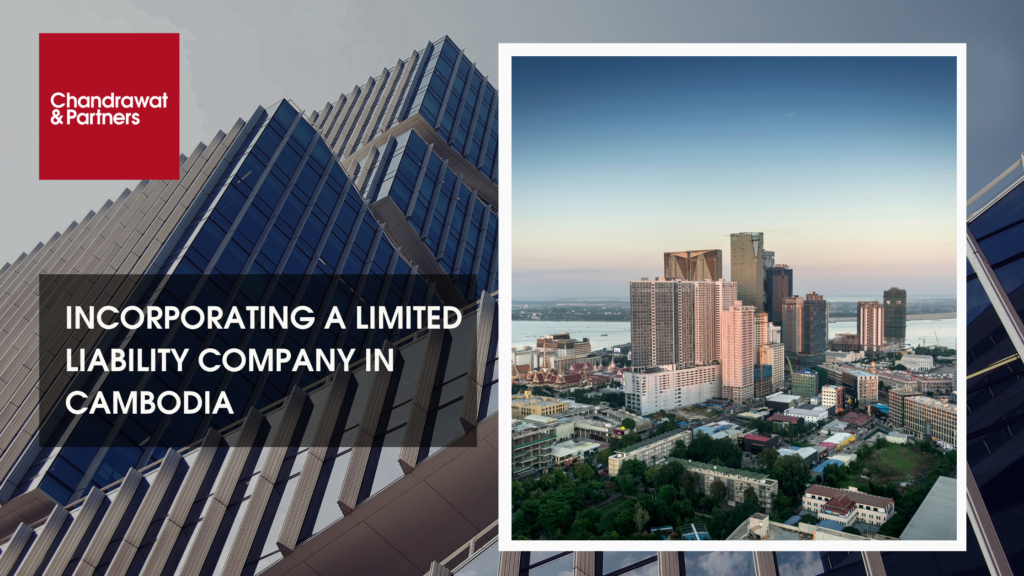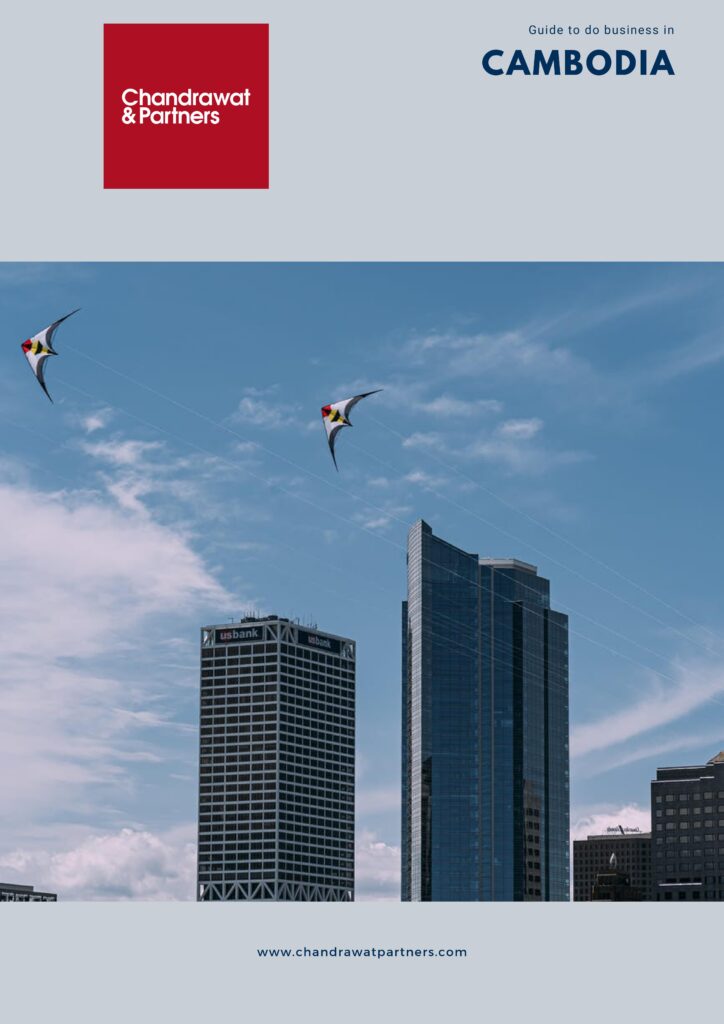We have a team of professionals to help you with all your business needs. So, that you can focus on business expansion in Cambodia.
Please feel free to email us on enquiries@chandrawatpartners.com
Cambodia
Why cambodia?
Situated in South-eastern Asia, between Thailand and Vietnam, Cambodia is an attractive investment destination for businesses looking forward to expand in ASEAN Countries.
Real GDP growth is forecast to be 5 percent in 2022, after the strong export performance earlier in the year, and nearly 5½ percent in 2023, supported by the continued recovery of tourism and ongoing policy support, although dampened by external pressures and the impact of rising prices on real disposal income. Cambodia Foreign Direct Investment (FDI) increased by 1.0 USD billion in Sep 2022, compared with an increase of 844.5 USD million in the previous quarter.
Advantages
Cambodia has signed Agreements for the Avoidance of Double Taxation (“DTAs”) with Singapore, China, Brunei, Thailand, Vietnam, Indonesia, and Hong Kong. Cambodian investment laws are very open and offer a range of incentives to investors. This combined with its close proximity to production facilities in Thailand and Vietnam along with the Chinese market makes Cambodia a lucrative market to invest in. The country offers a number of special advantages to foreign investors as follows:
Special economic zones (SEZs)
- Cambodia offers a perfect setting for foreign investments especially in border areas and for the export-based manufacturing sector,
- One-stop service to investors from registration of investment projects to the obtaining of routine export-import approvals,
- Exemptions from customs duty and taxes on imports and exports for most industries.
Investment Incentives
- Investment incentives are available for Qualified Investment Project (QIPs);
- Investment Laws make licensing procedures simpler, more transparent, predictable, automatic, and non-discretionary.
Multilateral agreements
Cambodia has signed various multilateral agreements with countries, which:
- create international standards as well as the efficiency advantages of a broader market; and
- offers low tariffs on a number of product categories in trading countries.
Special Depreciation
- QIPs, that do not avail of the income tax exemption are entitled to a special depreciation allowance of 40% of the value of new or used tangible properties used in production or processing,
- Special depreciation allowance is deductible during the first year of purchase of the tangible property or the first year using such property.
Customs Duty Exemption
- In accordance with the provisions of Article 26 of the Law on Customs, the exemption from customs import duties and taxes are granted for certain goods and to certain qualified importers.
- QIPs enjoy customs duty exemptions for imports of production equipment, construction materials, and production inputs.
Simple Tax Regime
Initially, Cambodia followed three types of tax regimes i.e. real, simplified, and estimated. In 2016, it adopted a single regime of taxation i.e. real regime or self-assessed tax regime. However, there are three categories of taxpayers in the real regime:
- Small Taxpayers: It includes Sole Proprietorship or Partnership, having annual taxable turnover from Cambodian riel (KHR) 250 million to KHR 700 million.
- Medium Taxpayers: It includes enterprises, having annual turnover from KHR 700 million to KHR 4 billion.
- Large Taxpayers: It includes enterprises having annual turnover over KHR 4 billion.
Types of Taxes in Cambodia
1.Corporate Tax
- The standard rate of Corporate Income Tax (CIT):
- For companies and Permanent Establishments (PEs) who are classified as medium and large taxpayers is 20%;
- PEs who are classified as small taxpayers, the CIT rates are progressive rates from 0% to 20%.
2. Individual Tax
Instead of personal income tax, Cambodia imposes a monthly salary tax on individuals who derive income from employment. However, general income from consulting is excluded from salary tax but is subject to tax under other heads, although in certain circumstances consultants may be deemed as employees. Salary earned worldwide by a Cambodian resident is subject to Cambodia salary tax, whereas, non-residents are taxed on Cambodian-sourced salary.
For annual income tax, the following brackets/rates are provided:
• up to KHR 18,000,000 – 0%
• KHR 18,000,001 to 24,000,000 -5%
• KHR 24,000,001 to 102,000,000 -10%
• KHR 102,000,001 to 150,000,000 -15%
• over KHR 150,000,00 – 20%
For the monthly tax on the salary of resident employees, the following brackets/rates are provided:
• up to KHR 1,500,000 – 0%
• KHR 1,500,001 to 2,000,000 -5%
• KHR 2,000,001 to 8,500,000 -10%
• KHR 8,500,001 to 12,500,000 -15%
• over KHR 12,500,00 – 20%
Non-residents – Non-residents are taxed at a flat rate of 20%, which constitutes a final tax.
Fringe benefits – Fringe benefits are taxable at the flat rate of 20% of the amount paid.
Cambodian Companies
Cambodian companies are governed by the Law on Commercial Rules and Commercial Register (“LCRCR”). The business entities which can be established in Cambodia are:
Sole proprietorship
A sole proprietorship in Cambodia is owned and operated by one person where a single owner owns all capital and profits of the entity. However, he is not a separate legal entity, and the owner will be personally liable for any debts.
Partnership
Partnership is common for local and small businesses, and are favored as business entities by accountants, doctors, and lawyers. There are two types of partnerships:
- general partnership; and
- limited partnership.
Limited liability company
LLC can be formed with 100% Cambodian ownership, 100% foreign ownership, or a combination of Cambodian and foreign shareholdings. It is the most common business entity in Cambodia and can have 1 to 30 shareholders. Types of LLCs are:
- Private limited company;
- Single-member private limited company; and
- Public limited company.
Foreign business entities
A foreign entity is a legal person formed under the laws of a foreign country, having a place of business in Cambodia. Mainly, there are three types of foreign business entities in Cambodia:
- Representative office;
- Branch office; and
- Subsidiary.
Related blogs

Large scale governmental reforms and investment incentives has supported the Cambodia’s competitiveness with other countries. In the second quarter of 2018, Foreign Direct Investment (FDI) inflow increased for the fifth consecutive times in the last two years to USD 832 million.
Author: Chandrawat & Partners
Topic: Doing Business in Cambodia
Download our short guide on – Doing Business in Cambodia
Contact Us
Get in touch with the right people to get the right help in setting up your business in Cambodia.
Contact us at: enquiries@chandrawatpartners.com
Cambodia
We have a team of professionals to help you with all your business needs. So, that you can focus on business expansion in Cambodia.
WHY CAMBODIA?
Situated in South-eastern Asia, between Thailand and Vietnam, Cambodia is an attractive investment destination for businesses looking forward to expand in ASEAN Countries.
Real GDP growth is forecast to be 5 percent in 2022, after the strong export performance earlier in the year, and nearly 5½ percent in 2023, supported by the continued recovery of tourism and ongoing policy support, although dampened by external pressures and the impact of rising prices on real disposal income. Cambodia Foreign Direct Investment (FDI) increased by 1.0 USD billion in Sep 2022, compared with an increase of 844.5 USD million in the previous quarter.
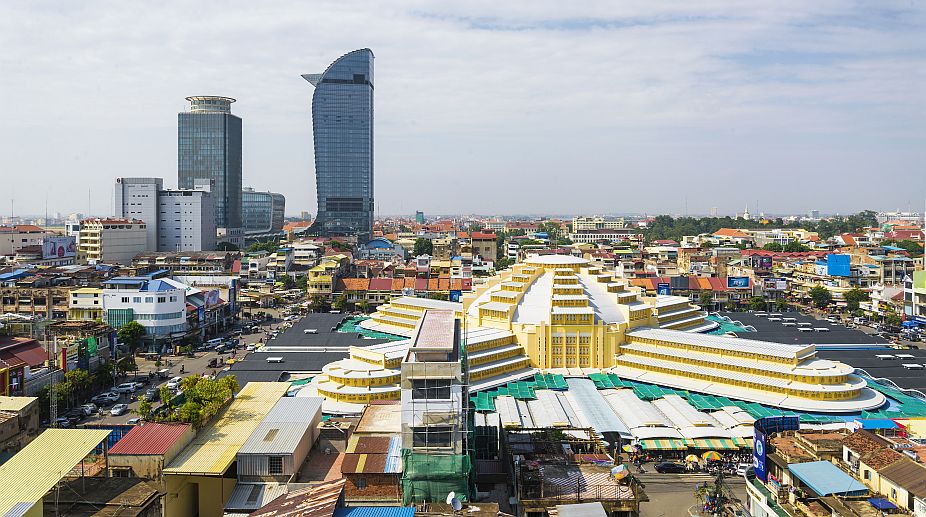
ADVANTAGES
Cambodia has signed Agreements for the Avoidance of Double Taxation (“DTAs”) with Singapore, China, Brunei, Thailand, Vietnam, Indonesia, and Hong Kong. Cambodian investment laws are very open and offer a range of incentives to investors. This combined with its close proximity to production facilities in Thailand and Vietnam along with the Chinese market makes Cambodia a lucrative market to invest in. The country offers a number of special advantages to foreign investors as follows:
Special economic zones (SEZs)
- Cambodia offers a perfect setting for foreign investments especially in border areas and for the export-based manufacturing sector,
- One-stop service to investors from registration of investment projects to the obtaining of routine export-import approvals,
- Exemptions from customs duty and taxes on imports and exports for most industries.
Investment Incentives
- Investment incentives are available for Qualified Investment Project (QIPs);
- Investment Laws make licensing procedures simpler, more transparent, predictable, automatic, and non-discretionary.
Multilateral agreements
Cambodia has signed various multilateral agreements with countries, which:
- create international standards as well as the efficiency advantages of a broader market; and
- offers low tariffs on a number of product categories in trading countries.
Special Depreciation
- QIPs, that do not avail of the income tax exemption are entitled to a special depreciation allowance of 40% of the value of new or used tangible properties used in production or processing,
- Special depreciation allowance is deductible during the first year of purchase of the tangible property or the first year using such property.
Customs Duty Exemption
- In accordance with the provisions of Article 26 of the Law on Customs, the exemption from customs import duties and taxes are granted for certain goods and to certain qualified importers.
- QIPs enjoy customs duty exemptions for imports of production equipment, construction materials, and production inputs.
SIMPLE TAX REGIME
Initially, Cambodia followed three types of tax regimes i.e. real, simplified, and estimated. In 2016, it adopted a single regime of taxation i.e. real regime or self-assessed tax regime. However, there are three categories of taxpayers in the real regime:
- Small Taxpayers: It includes Sole Proprietorship or Partnership, having annual taxable turnover from Cambodian riel (KHR) 250 million to KHR 700 million.
- Medium Taxpayers: It includes enterprises, having annual turnover from KHR 700 million to KHR 4 billion.
- Large Taxpayers: It includes enterprises having annual turnover over KHR 4 billion.
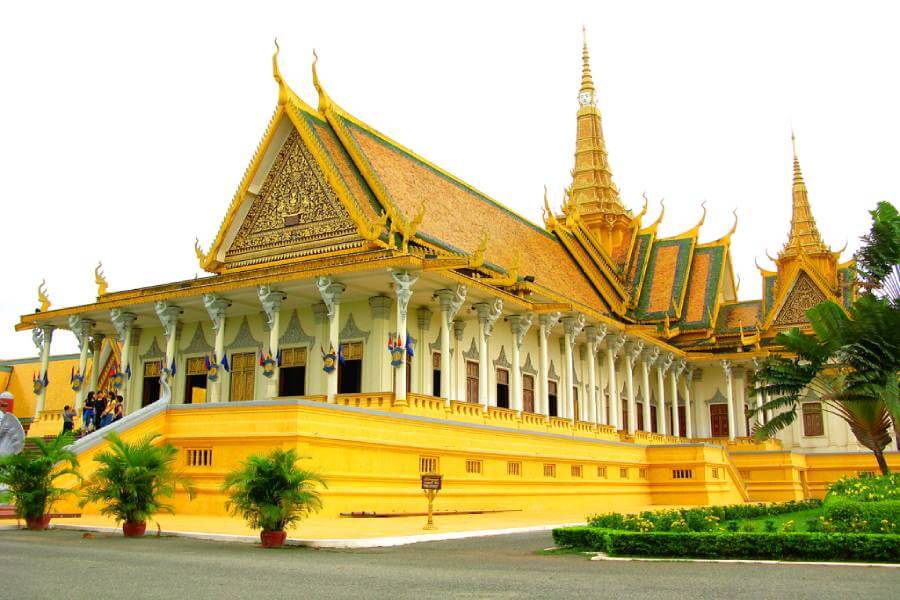
Types of Taxes in Cambodia
1.Corporate Tax
- The standard rate of Corporate Income Tax (CIT):
- For companies and Permanent Establishments (PEs) who are classified as medium and large taxpayers is 20%;
- PEs who are classified as small taxpayers, the CIT rates are progressive rates from 0% to 20%.
2. Individual Tax
Instead of personal income tax, Cambodia imposes a monthly salary tax on individuals who derive income from employment. However, general income from consulting is excluded from salary tax but is subject to tax under other heads, although in certain circumstances consultants may be deemed as employees. Salary earned worldwide by a Cambodian resident is subject to Cambodia salary tax, whereas, non-residents are taxed on Cambodian-sourced salary.
- For annual income tax, the following brackets/rates are provided:
up to KHR 18,000,000 – 0% - KHR 18,000,001 to 24,000,000 -5%
- KHR 24,000,001 to 102,000,000 -10%
- KHR 102,000,001 to 150,000,000 -15%
- over KHR 150,000,00 – 20%
For the monthly tax on the salary of resident employees, the following brackets/rates are provided: - up to KHR 1,500,000 – 0%
- KHR 1,500,001 to 2,000,000 -5%
- KHR 2,000,001 to 8,500,000 -10%
- KHR 8,500,001 to 12,500,000 -15%
- over KHR 12,500,00 – 20%
Non-residents – Non-residents are taxed at a flat rate of 20%, which constitutes a final tax.
Fringe benefits – Fringe benefits are taxable at the flat rate of 20% of the amount paid.
CAMBODIAN COMPANIES
Cambodian companies are governed by the Law on Commercial Rules and Commercial Register (“LCRCR”). The business entities which can be established in Cambodia are:
Sole proprietorship
A sole proprietorship in Cambodia is owned and operated by one person where a single owner owns all capital and profits of the entity. However, he is not a separate legal entity, and the owner will be personally liable for any debts.
Partnership
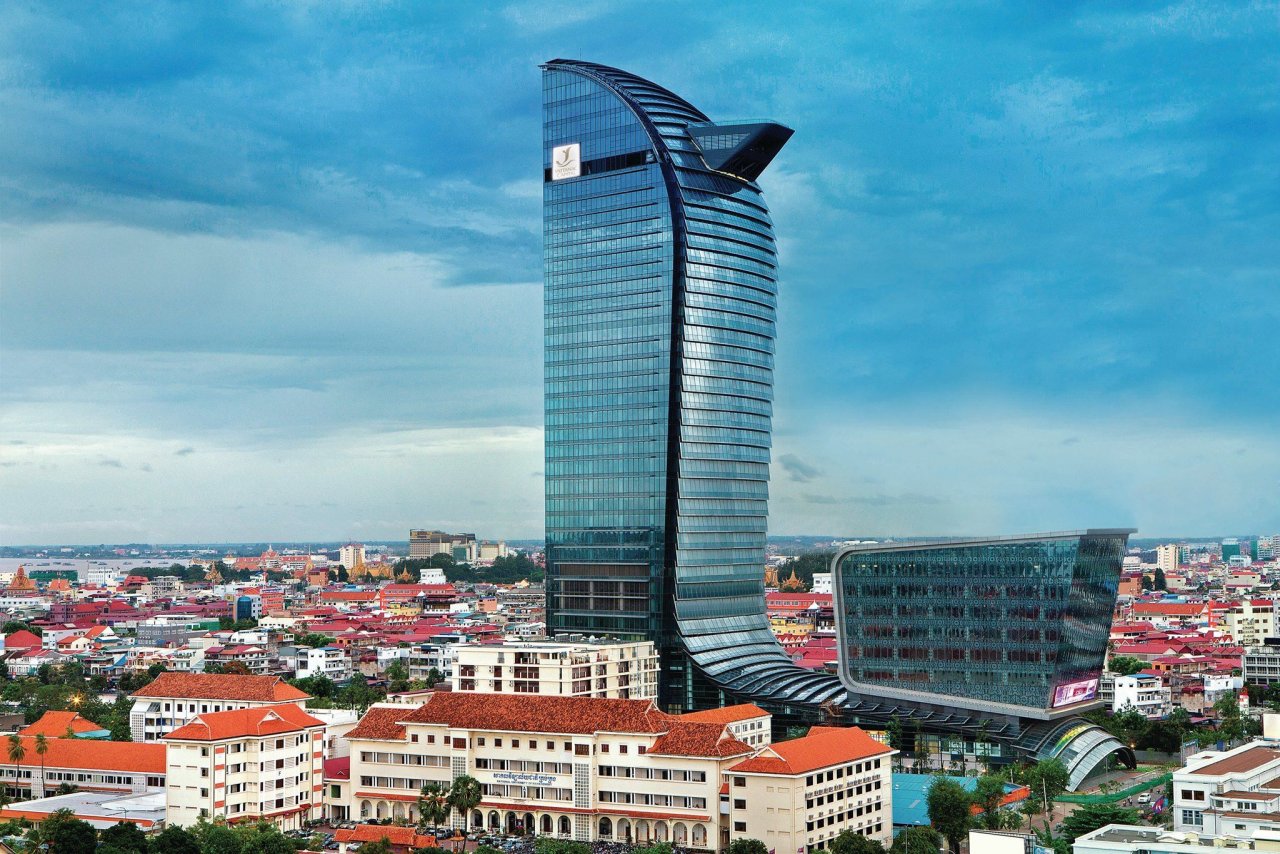
Partnership is common for local and small businesses, and are favored as business entities by accountants, doctors, and lawyers. There are two types of partnerships:
- general partnership; and
- limited partnership.
Limited liability company
LLC can be formed with 100% Cambodian ownership, 100% foreign ownership, or a combination of Cambodian and foreign shareholdings. It is the most common business entity in Cambodia and can have 1 to 30 shareholders. Types of LLCs are:
- Private limited company;
- Single-member private limited company; and
- Public limited company.
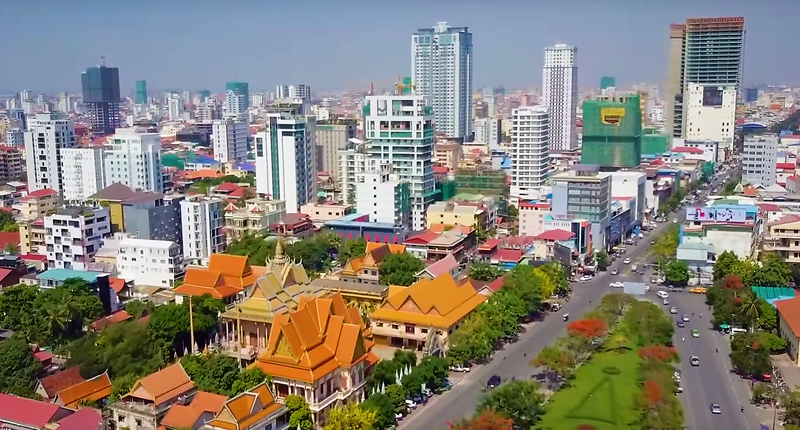
Foreign business entities
A foreign entity is a legal person formed under the laws of a foreign country, having a place of business in Cambodia. Mainly, there are three types of foreign business entities in Cambodia:
- Representative office;
- Branch office; and
- Subsidiary.


